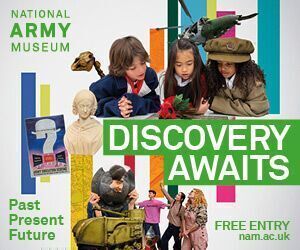Primary Times - the definitive what’s on and where to go family guide of activities and events for children of primary school age. Things to do with your kids during the school holidays including arts and craft activities, music and theatre for children, parties, competitions, days out, and family attractions along with term time drama schools, dance classes, after school clubs and sports activities. Things to do at a place near you!
Can we learn to love our greens? UK primary school children may have found the answer
 As part of BBC Learning's Terrific Scientific campaign, young scientists have been eating kale every day in an effort to prove that there may be a reason as to why some people don't enjoy their green vegetables.
As part of BBC Learning's Terrific Scientific campaign, young scientists have been eating kale every day in an effort to prove that there may be a reason as to why some people don't enjoy their green vegetables.
In partnership with Coventry University, school children aged 9-11 have been taking part in an ‘exposure test’ and using blue food dye, a piece of card, a magnifying glass and bags of kale to find out what affects our ability to learn to love vegetables.
Children were separated into two groups; half were asked to eat a piece of kale every day over a 15 day period, whilst the other half ate raisins. The study found that the majority of those who ate kale everyday liked it more by the end of the test; however there was a select group who remained adverse to the taste. When delving deeper into this, the young scientists found that those who still disliked kale had more ‘fungiform papillae’ (which carry our ‘taste buds’) on their tongue. These children were identified as ‘supertasters.’
Approximately 25% of the UK population may be super tasters and this makes them a lot more sensitive to strong tasting food such as Brussel sprouts, bitter coffee and grapefruits. If this is the case you may need to persevere for longer with strong tasting green vegetables such as kale before you start to enjoy them. 50% of the population are ‘tasters’ meaning they are likely to try most food but may have a few they dislike whilst the remaining 25% are non-tasters and may require more salt, spice and condiments than others to prevent food from tasting bland.
This ‘exposure’ test is part of Terrific Scientific, BBC Learning’s 18 month, UK-wide campaign to bring practical science into the classroom and into our homes. Focusing on 10 investigations the campaign will work in partnership with organisations from the world of science and a few famous faces. Aimed at upper primary school level, Terrific Scientific will help deliver the objectives of the science curricula for 9-11 year olds across the UK. So far over 8000 classes and almost 4000 schools have signed up to take part in the campaign and BBC Learning, in partnership with Wellcome, have sent out science boxes to 21,000 primary schools across the UK to encourage them to get involved in Terrific Scientific.
Jackie Blissett, Professor in health behaviour and change at Coventry University, said: ‘It’s been wonderful to work with these young scientists, and they’ve helped shed some light on one of the great mysteries: why some of us might not like our Brussels sprouts! BBC Learning’s Terrific Scientific campaign is a fantastic way to engage youngsters in an interactive experiment which makes the learning experiment much more fun.’
Helen Foulkes, Creative Director of BBC Learning says ‘Terrific Scientific is already helping children, parents and teachers to get excited about science. It’s great to see our young scientists already making an impact on the scientific world and with the help of our partners we have been able to show school children that their work and participation matters.’




